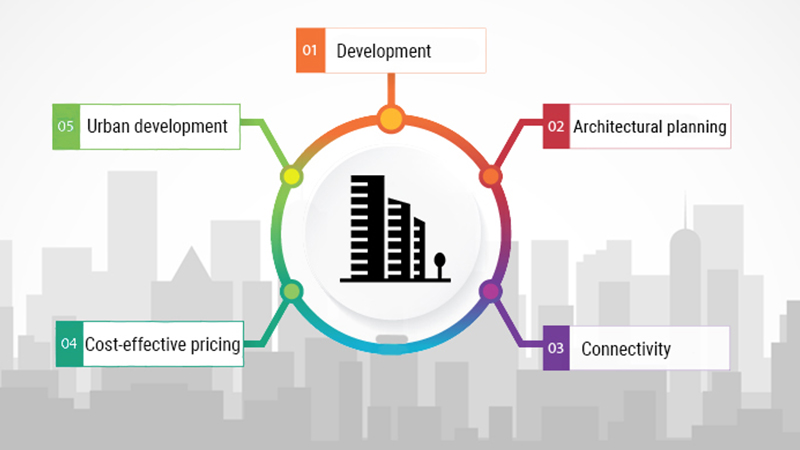

An Introduction to Commercial Property Leasing in India - Bhutani Group
When you are starting a new business, getting a place to set up your office or shop is one of the first considerations.
Now, at this stage, you may not be able to buy a property altogether. This is where the commercial property on rent in Noida comes into play.
So, let us understand the definition, types, and process of commercial leasing in India.
What is Commercial Leasing?
Leasing refers to a contractual agreement under which the owner of a property gives the rights to another party (lessee) to use the said property in exchange for money, subject to certain terms and conditions.
A Commercial Lease is one under which the property is leased for commercial purposes such as business, office space, retail space, individual shops, etc.
Unlike residential leases which are quite easy to understand, a commercial lease can be a little more complex as it comes with several terms and conditions.
Also, commercial property on lease not only to individuals but also to entities such as sole proprietorships, HUF, or corporates.
Types of Leasing Structures in India
On a broad level, there are two main types of the lease in India-
1 Operating Lease.
2 Financial Lease.
1. Operating Lease
Under an operating lease, the legal ownership of the property lies with the property owner.
The owner only extends the rights to use his property for economic uses or business purposes for a pre-defined period of time.
Once the lease duration ends, both properties can decide whether to extend the lease allowing continuous usage of the property to the lessor or to terminate the contract.
The ownership, however, lies with the true owner throughout.
2. Financial Lease
In the case of a financial lease as well, the property rights remain with the owner during the lease period.
However, at the end of the lease, the tenant party is given the option to purchase the said property by paying the residual amount.
This amount is usually pegged at 10% of the property's value or less.
You can see this type of lease as a loan. The tenant will keep paying the lease rent (such as EMIs) and, in the end, pay the residual sum, and own the property.
Comparison: Financial Lease Vs. Operating Lease
| Feature | Financial lease | Operating lease |
| Legal ownership | Lessor | Lessor |
| Right to economic usage | Lessee | Lessee |
| Responsibility for ensuring an asset | Lessor or lessee depending on the contract | Lessor or lessee depending on the contract |
| Responsibility for the maintenance of asset | Lessee | Generally, lessee; some leases may offer bundled contracts with maintenance by the lessor or lessor-appointed agency |
| Transfer of ownership at end of lease | The lease agreement will typically offer a renewal or purchase at a price considerably lower than the fair market rental/ price of the asset | The asset is returnable to the lessor; a lease contract may offer a purchase option at a price usually based on the expected fair value of the asset |
| Choice of vendor | Lessee | Lessee, but subject to greater involvement of the lessor |
So, before you sign on the dotted line, one of the primary considerations is to see which type of commercial property lease you are offered and the terms and conditions that it entails.
Being a smart property seeker will always work in your favor and save you from future problems and regret.
Get in contact with the best developers in India in order to make an investment in commercial property on lease.









Leave a comment
All fields marked with an asterisk (*) are required